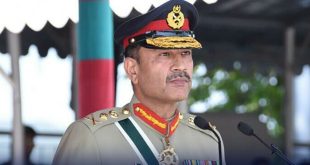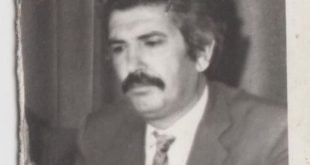The term ‘Leadership’ is broadly defined as the relation between an individual and a group built around some common interest and behaving in a manner directed or determined by him. The relation of leadership arises only where a group follows an individual from free choice and not under command or coercion and, secondly, not in response to blind drives but on positive and more or less rational grounds. In other words leadership implies a following whose behaviour is the result of a conscious consideration of the leader’s personality, of its own interests and of the anticipated social consequences. Although the traits of personality enabling the leader to impress a following vary with the programme to be achieved and with the types which he addresses, certain traits can be abstracted as generally effective in a particular situation or environment. But when the leader comes he must first give proof of his peculiar ability to carry out the appointed reform before the formation of a group can be actually achieved. In the course of the movement it should be clear whether the alleged leader is cast in a different mould from the mere representative of authority or from the simple demagogue. Often it happens that the leader at hand lacks the personal strength to remedy the evil, and it remains flagrant until an adequate individual arises to the scene. The method of appeal depends fundamentally upon the leader’s calculation of mass psychology in the particular environment in which he is operating. For a leader the crucial test lies in the fact that whether he can arouse the faith of his followers in his personality as only through such faith can he inculcate in them the power of endurance and the spirit of devotion to the common cause without which he cannot succeed.
Types and features of creative leadership
As to the different types of leadership, it is appropriately designated as representative or symbolic and dynamic or creative. A representative leader is an individual who satisfies the expectations of the group by acting on its behalf. Its illustrations are provided by legendary or quasi-legendary figures. The static conditions of primitive life everywhere reveal the phenomenon of one or more individuals leading the group from which they are differentiated on the basis of their real or accepted distinctive prowess in its traditional activities. The role of individual and his qualities and devices which permit an individual to become the center of group activity without changing its essential direction. In modern as in primitive times and in all sphere– military, political, economic, technological, cultural, religious – leaders in the sense of pre-eminent representatives of their group exercise a notable influence on the course of events by serving as models for the others to imitate. They even become symbols entirely abstracted from the group and typifying for later generations the values for which it stood. There are several such examples in historic and modern times – Joan of Arc as the protagonist of French national independence, Garibaldi as Italian patriot and archetype of republican, and Mahatma Gandhi as a symbol of national awakening in India.
Creative leadership emerges when a personality becomes the propulsive force for a value or complex of values or in certain circumstances for a systematic programme, rallying about himself a group of men which on a small or a vast scale creates a stronger pressure than could emanate from any individual. The programme may be directed toward material ends – economic, technical or political – or toward spiritual ends – religious, moral, humanitarian, artistic. But in any case this type of leadership diverges from representative leadership in that it involves an attempt to enrich or alter the existing stock of values in the possession of a society by gaining acceptance for an innovation freshly created by the leader or if the innovation has been borrowed from another culture by diffusing it in the new area. The difference of genuine leader as opposed to the merely representative leader is not characterized by its greater profundity and intensity but also by its radiation over a far wider sphere. By activation he prepares a wide base of leadership and develop it into a class or stratum grasping and exercising the function of leadership over a constantly expanding body of men. This latter phenomenon is typical of the process of dynamic leadership in political relations, where the functions of leadership become magnified and therefore most easily analysed. It is a step forward in institution-building as Gandhi did in case of the Indian National Congress. He produced a band of outstanding leaders all over the country and assigned to them special duties and functions in the Congress. There were the men who later provided a unified leadership for independent India at various levels in government and party organisation.
Other traits of leadership
Other than these, no less significant is the influence of the “Charismatic Personality”. It is the experience, not only of the under-developed non-Western nations but also of the advanced nations of the West, such as, the United States of America, Britain and France that even worldwide mechanization has not eliminated the importance of this charismatic leadership. In it, the individual who believes or is believed by others, or most often both, to be one who is specially designated by the deity or by fate to play a decisive role at a decisive moment in his people’s history, is not limited to a particular region. The world is proud of its leaders like Nehru, Sukarno, Nasser or Nkrumah, Stalin and Khruschev who possessed a unique ‘cult of personality’. The West too in the middle of the twentieth century, has turned for guidance to or found a father image in such varied personalities as Hitler and Winston Churchill, Franklin D. Roosevelt and Mussolini.
These leaders have been significant not merely because they had the courage to take risks and the readiness to make decisions in times of stress when others were fearful and indecisive, but because they aroused memories of a glorious past that had long lain dormant, and symbolised ideas which their people believed in but had ceased to implement. They bring new ideas and practices from other lands and cultures to their own, but they do so because they are regarded by the people, and so regard themselves, as an integral part of their community. Intellectually or instinctively, they are aware of the needs and potentialities of their people, that they are able to infuse ancient customs with new meaning, to stir a stagnant society into constructive action to adapt and remould human material formed over centuries or even millennia, to the demands of the nuclear age.However effective action to alter material factors ultimately depends on the effectiveness of human beings – on their willingness and their capacity to change existing conditions.
Writer is Dr. Rajkumar Singh Professor and Head P.G.Department of Political Science BNMU, West Campus P.G.Centre, Saharsa Bihar, India. [email protected]
 Afghanistan Times
Afghanistan Times



